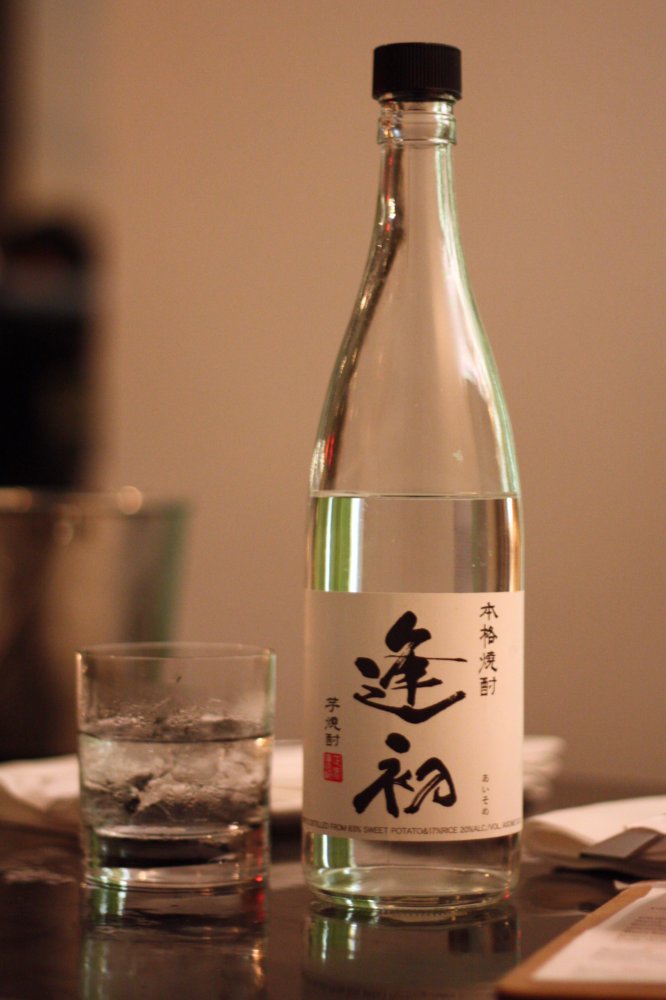Brand: Aisome
Distillery: Masaharusyuzou Co., Ltd.
Location: Miyazaki Prefecture, Kyushu, Japan
Grain: 83% imo (sweet potato) & 17% rice
Koji: unknown
alcohol content: 20%
Price: $$
Tasting Notes
Aisome, which I discovered by chance at 1 or 8 in Williamsburg, Brooklyn, over the weekend, was a pleasant surprise. This is an imo shochu, but unlike other imo I’ve had. The nose is typical – the faintest hint of earth along with sweet potato – with a promise of sweetness. The initial taste doesn’t disappoint in that regard. It’s a slightly sweet start, but that disipates quickly.
What’s suprising at that point is that the taste transforms to something faintly like celery (yes, celery – I couldn’t make that up) before settling into a herbal flavor not unlike an aquavit, though it does lack any hint of anise, which I associate with aquavit for better or worse.
None of this is completely unpleasant, though it is unexpected. The herbal flavor settles onto the tongue for the finish, but doesn’t linger.
Verdict: Worth Drinking
This was something completely different from what I’m used to with imo shochus. Come to think of it, I can’t think of too many strongly herbal shochus in my memory. I suppose I’d again caution that this might not be something you’d enjoy if you’re just starting out, but if you’re looking for something unique you could do much worse than Aisome.
I’m not scoring it overly high, because I’m not sure I actually “like” it, though it does have some unique qualities so I’ve got to give them credit for that. This is also the first shochu I’ve reviewed that I’m putting on the “dry” side of the slate, for those of you keeping score at home.
Kampai!

